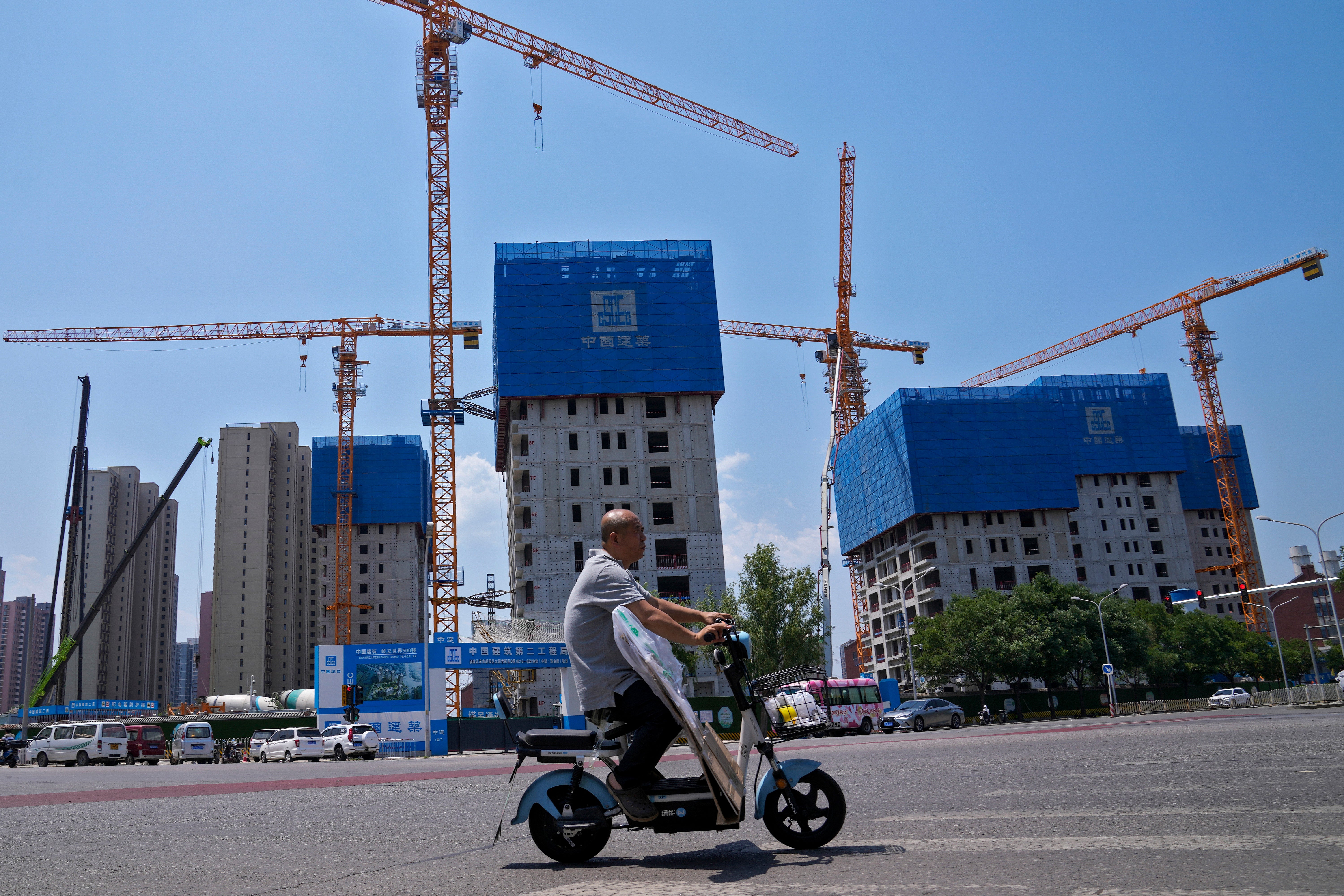China pledges help for renters, among other moves to prop up its ailing property market
China has rolled out a flurry of measures to help prop up its ailing property market, while also promising to boost government spending

China promised more help for renters as it rolls out a flurry of measures to prop up its ailing property market, while also promising to keep government spending at a “necessary intensity.”
The moves to increase the supply of affordable housing and spur demand come just weeks before top officials will gather in Beijing for the annual meeting of the national congress, a time when the ruling Communist Party will want to showcase its leadership.
Chinese stocks sank on Friday, dragged lower once again by property-related shares despite a campaign to build confidence in the slowing economy. The real estate industry's woes were highlighted earlier this week by an order by a Hong Kong court for the liquidation of China Evergrande, the world's most heavily indebted developer with more than $300 billion in debts.
China's property sector accounts for nearly a third of the country's economic activity and an industry-wide meltdown, triggered by a crackdown on excessive borrowing that began several years ago, has weighed on growth and sapped the confidence of both investors and consumers.
The economy expanded at a 5.2% annual pace last year but is forecast to slow this year.
The sluggish property market also has dented local government revenue from vital land use sales, adding to public debt. The Finance Ministry reported Thursday that land sales revenues fell 13.2% in 2023 from the year before.
The government recently has expanded access to loans to help developers recover from the downturn. On Thursday, Wang Dongwei, a vice minister of finance, pledged to keep spending at a “necessary intensity.”
Various regions in China have issued “white lists” of projects that qualify for lending, a key part of the government's effort to revive the industry.
The central bank and State Administration of Financial Supervision issued a list of 17 measures to support the rental housing market, due to take effect on Monday. Most have to do with financial services for leasing, promoting investment in rental housing and improving the financial management of rental properties.
“Financial support for the development of the housing rental market should highlight key points and target shortcomings, mainly in large cities, focusing on solving the housing problems of new citizens, young people and other groups,” said a document posted on the government website.
The aim is to “support various entities to build, renovate and operate long-term rental housing, and to revitalize existing housing stock, effectively increasing the supply of affordable and commercial rental housing,” it said.
Home ownership in China has vastly expanded over the past few decades, after a sweeping housing reform that gave workers ownership of homes that were previously assigned to them by the state-owned companies and agencies that once employed most city dwellers in the formerly centrally planned economy.
The home ownership rate in China is about 90%, much higher than in many Western countries, and many urban families buy multiple properties as investments. Beefing up the rental market would help free up more housing for young people and others who lack the means to purchase apartments.
In other moves, some local governments have announced preferential terms for families with more than one child to obtain mortgages for homes for their own use. In Shanwei, in southern China's Guangdong province, families with two or more children can get loans that are 20% higher than the usual limit, among other measures.
The Ministry of Housing and Urban-Rural Development, meanwhile, said a first batch of real estate projects qualifying for loans and equity financing in eight cities or provinces required financing amounting to 3.5 trillion yuan ($496 billion).
Bookmark popover
Removed from bookmarks